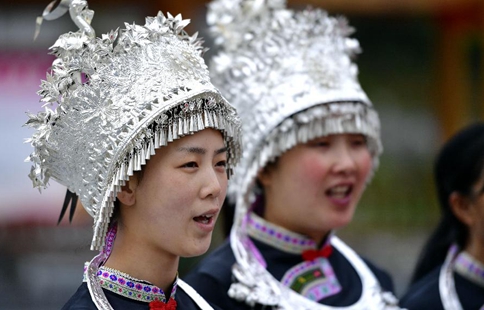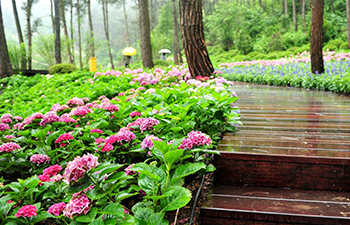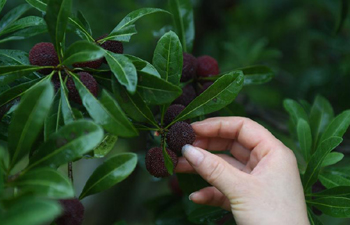CANBERRA, June 15 (Xinhua) -- Historically known as being self-reliant, stoic figures who are happy to "do it tough," Australia's farmers are their own worst enemy in regards to addressing potential mental health issues, according to a study published on Thursday.
The effects of poor mental health have been widely advertised in modern times, but the recent push toward society being more accepting of mental health issues may have leave farmers behind, according to the University of South Australia's Melissa Hull, who believes many feel unable to share their feelings due to "culturally entrenched" attitudes of stoicism.
Hull, co-author of a study into the preconceived ideas about farmers and their mental health battles, told Xinhua that farmers in Australia in particular have always been considered strong characters who don't speak about their feelings.
But with farmer suicide rates at higher levels than the general population, she said it was time for farmers and medical professionals to begin to break down those cultural barriers preventing those who live on the land from speaking up about mental health.
"These are attitudes that tend to be passed down throughout generations and reflect on historical times when farmers often had no one else to rely on or could not easily access help," Hull said.
"Thus attitudes of self-reliance, being stoic and carrying on despite setbacks became quite common."
According to Hull's research, 35.6 percent of farmers said they "don't know how to talk" about mental health issues with their doctor compared to just 16.7 percent of the general population, while a quarter said they found it difficult to understand their doctors compared to 15 percent throughout Australia.
Hull said the stereotypes are inter-generational, adding that the attitude of stoicism not only reduces the likelihood of a farmer approaching a medical professional for assistance, but, if one did seek help, they might not explain the extent of their issues, meaning their problems may not be fully diagnosed.
She said the onus was not only on sufferers, but also on medical professionals to do more to help farmers open up about the struggles they may face in their work and everyday life, calling for a greater understanding of farming life as one way to bridge the gap.
"Rather than a shift in attitude from the farmers themselves, this (study) might point to the fact that the health professionals may need to adapt how they interact and communicate with farmers," Hull said.
"This may reflect in how they frame questions about symptoms, or even reflecting a stronger understanding of farming life during general consultation time."
While the data paints a bleak picture for farmers and associated mental health issues, Hull said that younger farmers were more likely to feel confident in seeking out help compared with their "old-school" counterparts.
"Previous research from the broader population has shown that younger people tend to be more open to experiences than older people. So our finding is consistent with that," Hull said.
"In this population we also expect that values of stoicism and similar attitudes are less entrenched in younger farmers, making it easier for them to ask for and seek help."
Through her research, Hull has called on law-makers to help cut through the "culturally entrenched" and "inter-generational" problem by addressing the shortages in mental health services, claiming they need to be proactive to reduce the vulnerability within the farming community.

















